- Men's shoes
- Nike
- Nike Waffle
- Nike Waffle Trainer 2 SP Hyper Royal/ Metallic Silver
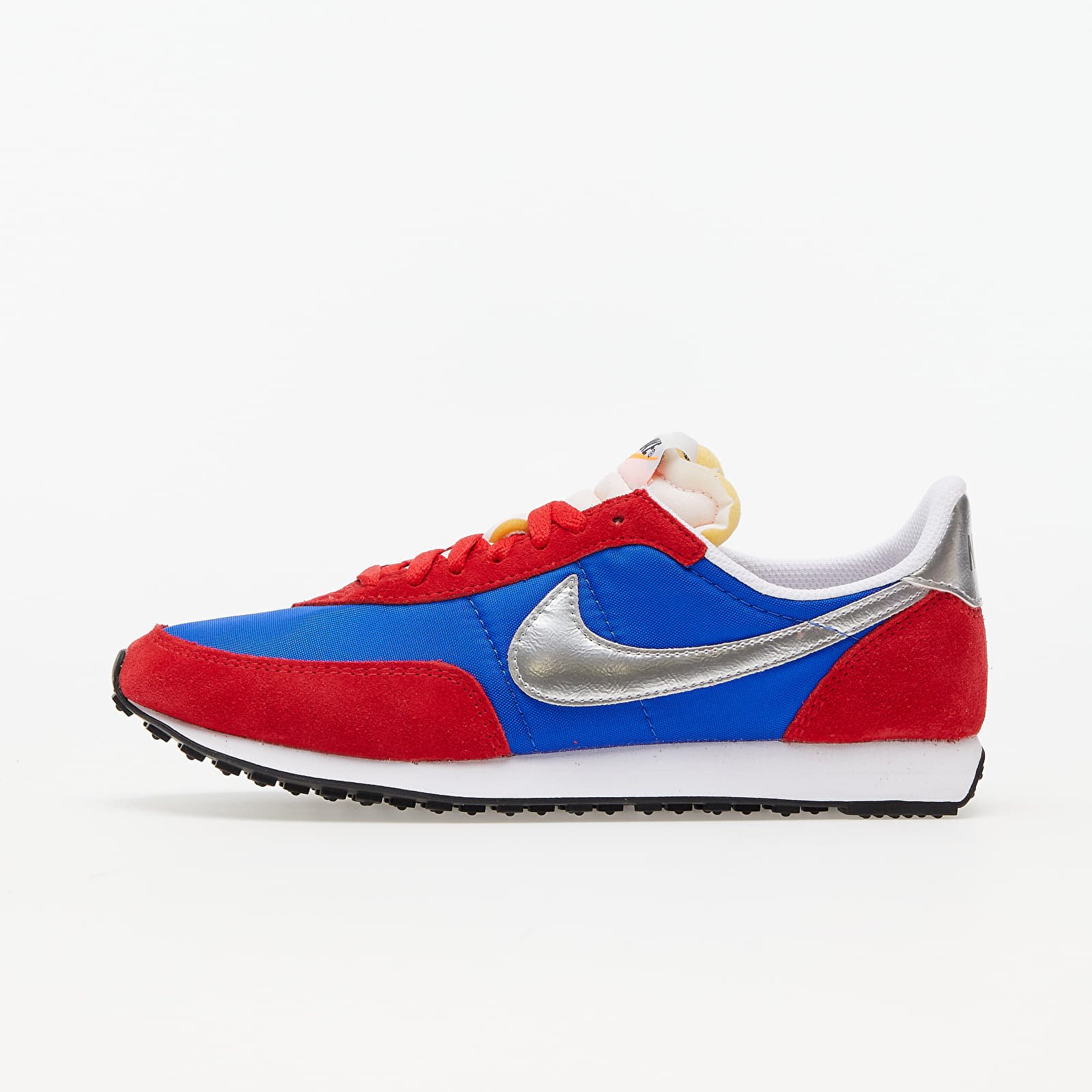
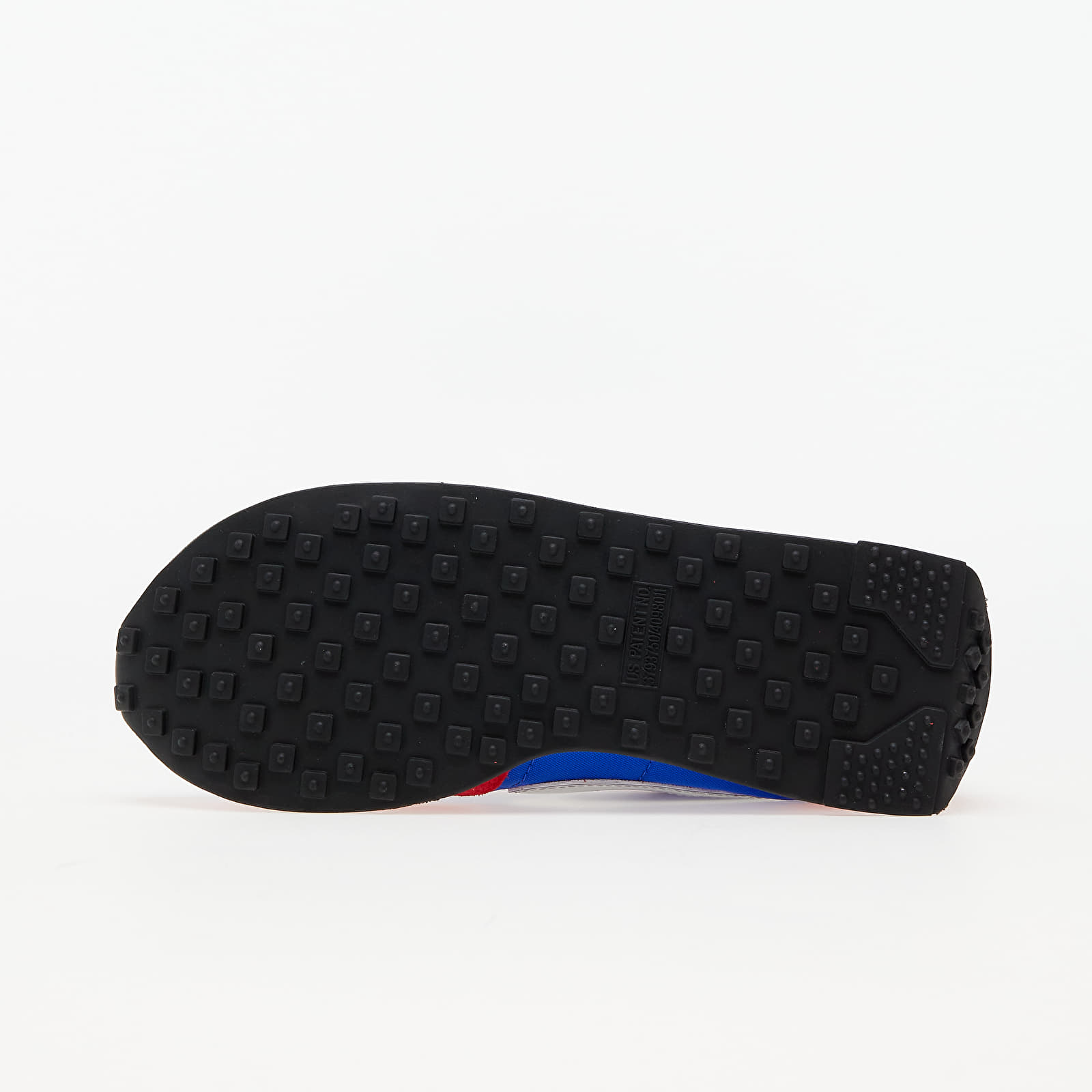
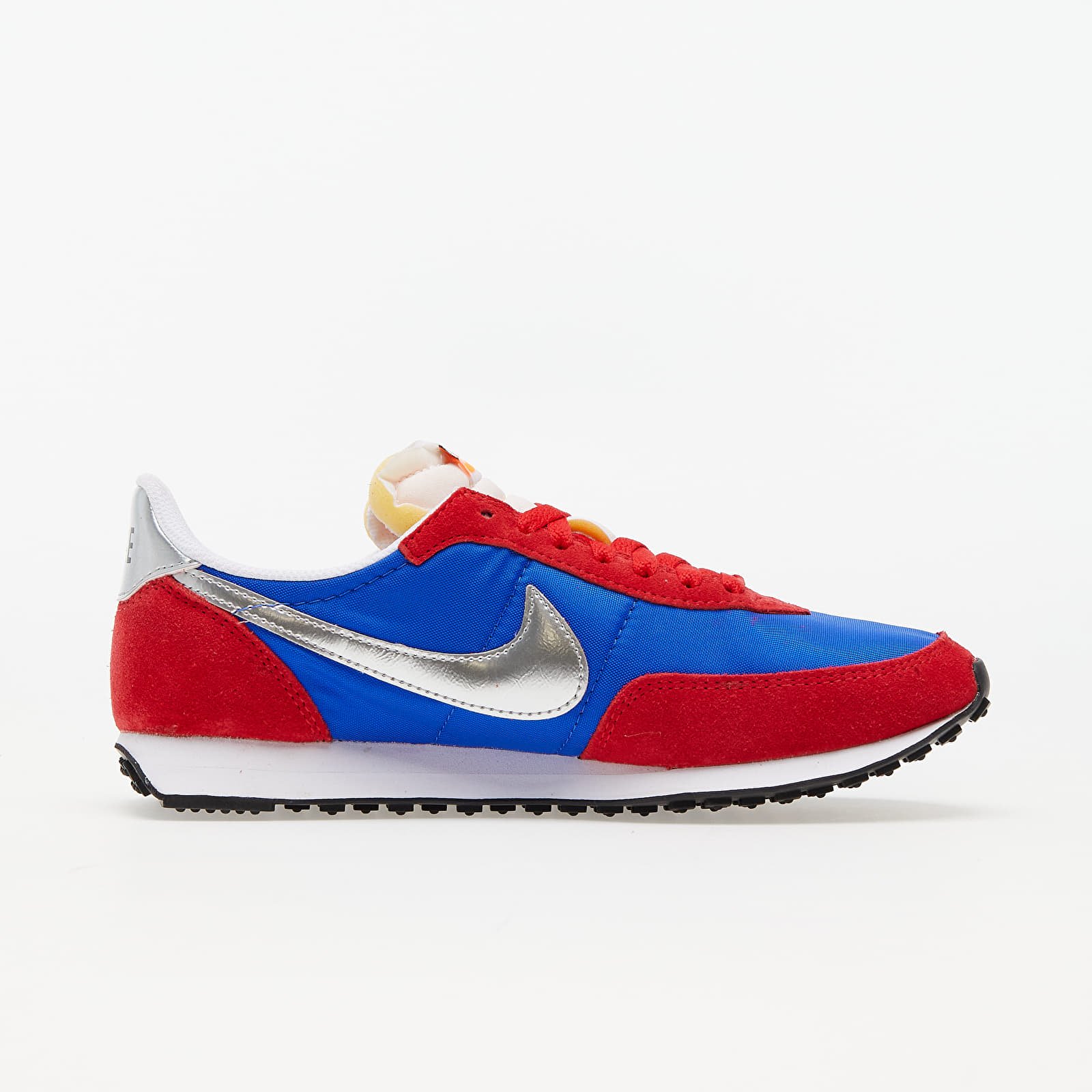
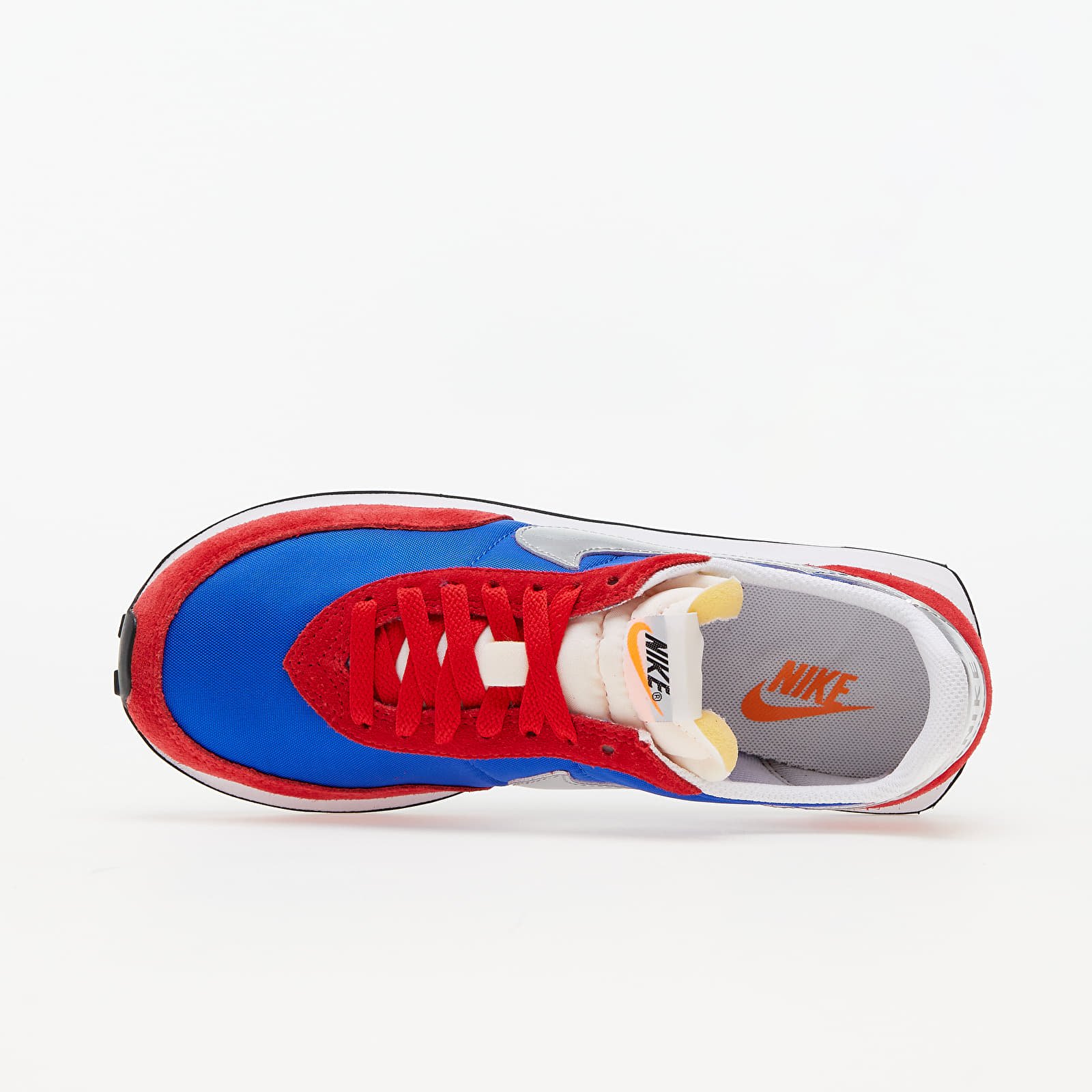

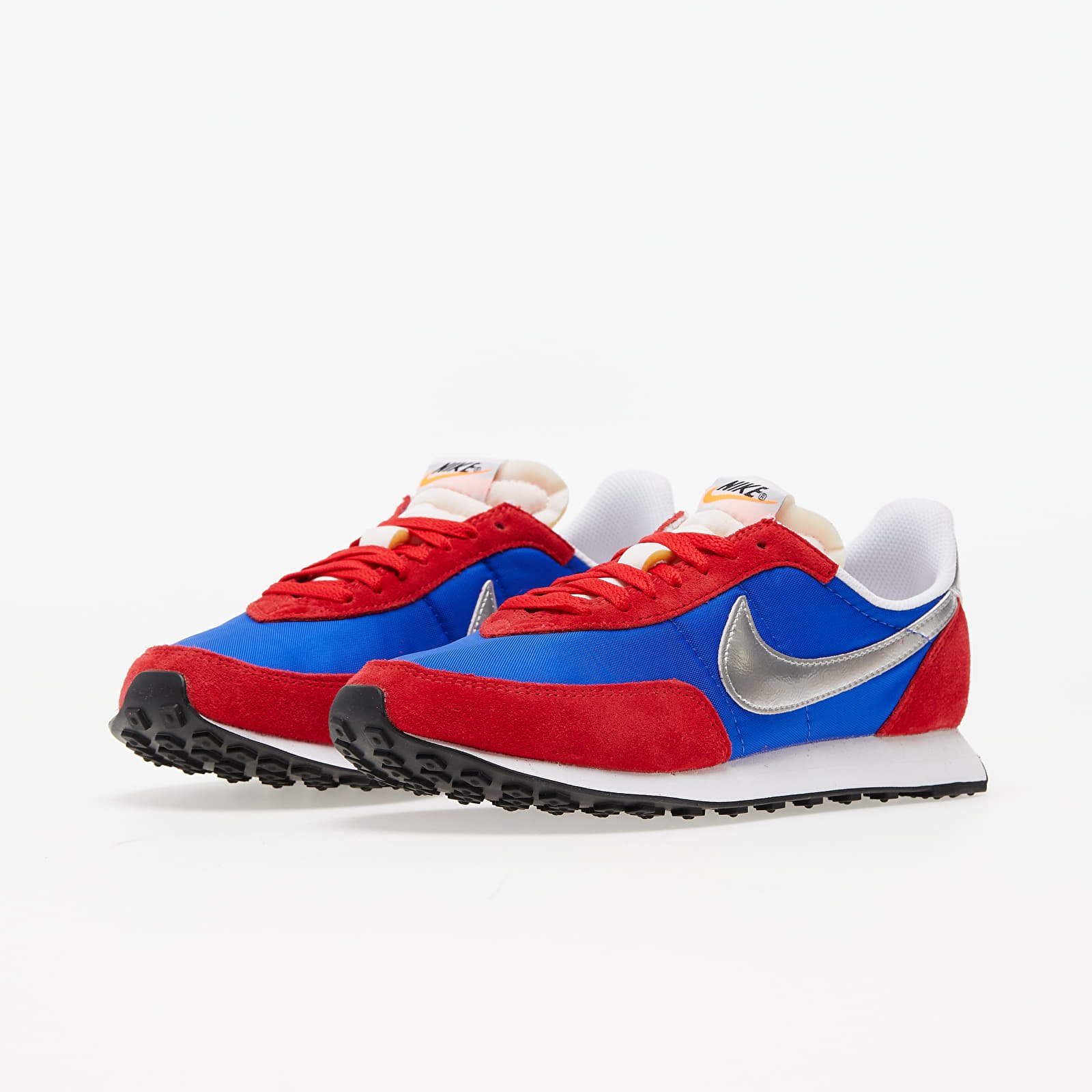
This product is no longer available.
We're sorry that this product is sold out, but there are other 4875 models of sneakers in stock.
Similar products
Nike Waffle
Once upon a time, in the 1960s, to be precise, running was not considered a sport or a hobby. People didn't run. The running sneakers on the market could be counted on the fingers of one hand, and anyone who ran at all was considered crazy or a college student. And this is exactly where the story of the Nike Waffle sneaker begins. Nike was in its infancy at the time and only distributed running sneakers when its owners, Bill Bowerman and Phil Knight, ran the track team at the University of Oregon. In the early 1970s, the Hayward Field running team was transitioning from a cinder track to an artificial surface, and Bowerman was looking for a running shoe that would be suitable for multiple surfaces. One day, Bowerman was having waffles for breakfast with his wife, and there it was. He saw the waffle and thought: "If I flip the sides of the waffle so that the waffle part comes in contact with the track, this could work." He got right up from the table, went to his lab, and started working.
The sneakers with specially modified soles first came out in 1973, were suitable for both flat and uneven running surfaces, and helped push the idea that the sole could also absorb shock to the joints. Prior to that, all athletic soles were flat, so the Waffle-inspired outsole was the first major innovation in the industry. The first model was made in Japan, had nylon upper, and gained popularity at a cosmic speed. Later came a canvas, slightly redesigned version called the Waffle Racer. Over time, the sneaker was improved upon, and the original waffle sole was used on other Nike products such as the Astro Grabber, Nike Elite, and the Tailwind silhouettes, which even became the chosen sneakers of American football players.
Nike also made 12 pairs of these Nike Waffle sneakers for Olympic runners, and one of these pairs, completely unworn, is the most expensive pair of sneakers in the world. If you want to know how much it went for and what it looked like, read our blog article Sneakers for Millions - Top 20 Most Expensive Shoes in the World. You have to admit that not many sneakers have so much history behind them, they are both comfortable and stylish, and honestly, those are already compelling reasons to get a pair for your shoe collection, don't you think?
Materials
Suede: leather cut from the back, while the fibers remain on the surface, suede is less prone to damage than nubuck.
Textile: The textile upper of the sneakers is lightweight, breathable and comfortable, ideal for everyday wear and sports. It ensures air circulation, keeps feet fresh and adapts to their shape. Often complemented with synthetic or rubber details for durability and support.
Polyurethane foam: is one of the best thermal insulators, is lightweight, tough and windproof.
Rubber: The rubber outsole provides excellent grip and durability on a variety of surfaces. Thanks to its elasticity, it absorbs shock, increasing comfort when walking or running.
User reviews
Perfect
Nike is an unquestionable giant in the world of sports and fashion. Nike clothing, sneakers, and even accessories have long been among the best value for money. Beyond the aforementioned apparel and accessories, the success of the brand is primarily due to its sneakers.
Innovation and Nike Air
Nike has become extremely famous for its legendary Air technology. The first Nike shoes with the then strange air bubble came out in 1987. Their name is etched in the memory of anyone who is even slightly more interested in Nike footwear - Nike Air Max 1. The designer of the first model line of Nike sneakers with the so-called Air Sole was Tinker Hatfield. An icon of sneaker culture, thanks to which today we can wear Nike shoes with the Air Max label in a wide variation of models.
We would spend ages listing all the silhouettes Nike Air Max shoes have come out in to date. Therefore, suffice it to mention the most essential ones. We would include the Nike Air Max 1, 90, 95, 97, 98 and of the newer ones, the Nike sneakers labeled Air Max Plus, 270 or 720.
Nike History
The original name of the company we know today as Nike was Blue Ribbon Sports. Nike sneakers didn't start appearing under their current name until 1971, when the legendary brand was joined by the no less legendary logo - the Swoosh. This was put together at the time by University of Portland student Carolyn Davidson, and her pay for this sideways design was then just two dollars an hour for labor (relative to today's prices, that would be roughly 7 times as much).
More than an Air Max
Nike footwear isn't just associated with the entire Air Max line, however. Today, it also has a large number of its own offshoots under its umbrella, which includes Nike Skateboarding (SB), a subset of the global brand that makes skateboarders happy to wear Nike shoes today. But you'll also find Nike footwear on the feet of basketball players. Worth mentioning is the legendary Nike sneaker model called Blazer, which is still very popular today. Nike shoes for basketball players gained such popularity over time that in 1984 the Air Jordan brand was created under Nike's wing. Originally, these Nike shoes were only for the legendary Michael Jordan, but not long after their introduction, they were also in the hands of the public. And apart from the various product lines, Footshop is also the place to get Nike slippers. What's more, you'll find all of the pairs mentioned here in all colours, including white, black, red, blue or coloured.






